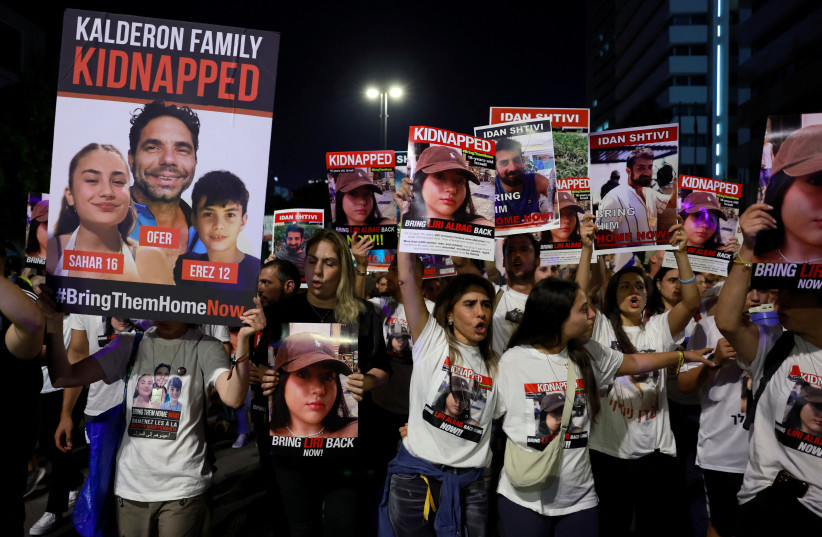A document prepared by the Welfare Ministry ahead of Israel's highly anticipated ceasefire and hostage deal with Hamas details how IDF soldiers who first encounter child hostages should correctly deal with them. The children have been in Hamas captivity for over six weeks and the conditions of their general health are unknown.
Some 40 children and 13 mothers are held hostage, but not all of them will be included in the initial group slated for release because Hamas claims that it does not know the location of all the hostages, including the children. Palestinian Islamic Jihad also holds several hostages.

"This briefing deals with the return of minor abductees, which was written at our request by Prof. Carmit Katz and a team of selected professionals from the Haruv Institute," reads the opening of the document, which was first revealed by news site Kikar Hashabbat. The institute, located in Jerusalem, is "a recognized leader and international center of excellence in the field of child maltreatment," its website says.
The instructions were also sent to IDF personnel who will be the first to receive the children after the exchange takes place.
"When the soldier meets the child," the document reads, "he will introduce himself as follows: 'Hello, my name is... I am a soldier in the Israel Defense Forces and I am accompanying you to get home. You are in a safe place. I am here to take care of you, you are safe."
<br><br><br>Questions soldiers should ask the children<br><br><br>
Also listed is a set of questions that soldiers should ask the kidnapped children:
"Are you cold or hot?" and "Are you thirsty?"
If the soldier identifies that a child has difficulty walking, he should ask him: "Can I give you a hand? Is it okay if I pick you up and help you walk?"
The soldiers were also instructed on how to deal with difficult questions such as the unknown fate of family members after the October 7 massacre. "The children will ask questions such as 'Where is my mother? Where is my father?' The soldiers must not answer these questions, even if they know the answers," the document states.
"Each question must be answered along the lines of "I'm sorry, I don't know. My job is to bring you to Israel, to a safe place, where people you know will be waiting for you and will answer all of your questions.'"
There is also a directive for soldiers to take care of themselves: "The meeting with the child may trigger an experience of emotional flooding in you as well, and perhaps along with the excitement, even distress and a reminder of all the difficult and traumatic events that have taken place. You must use the help of a professional to be a safe and enabling anchor for the child when you meet them."
